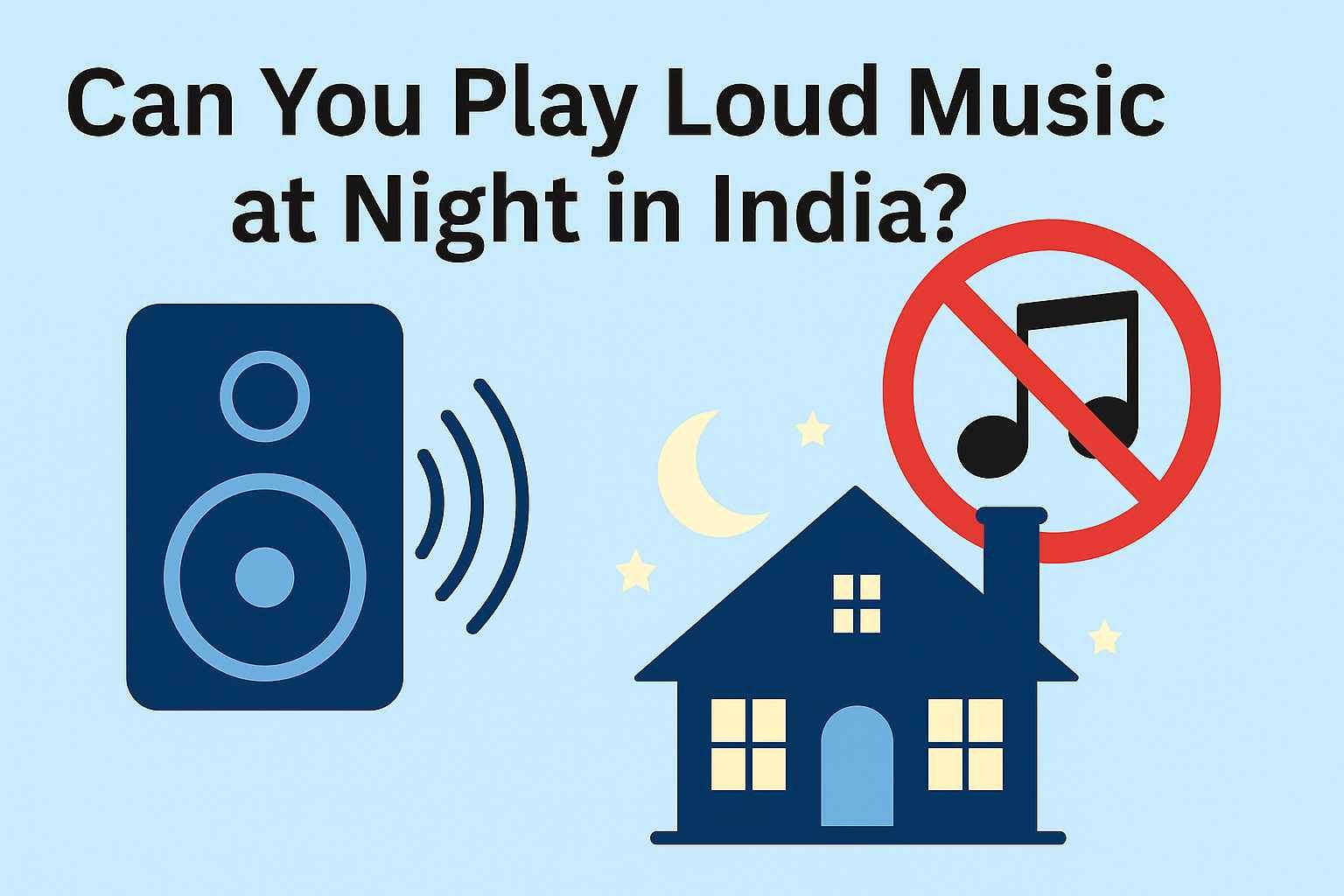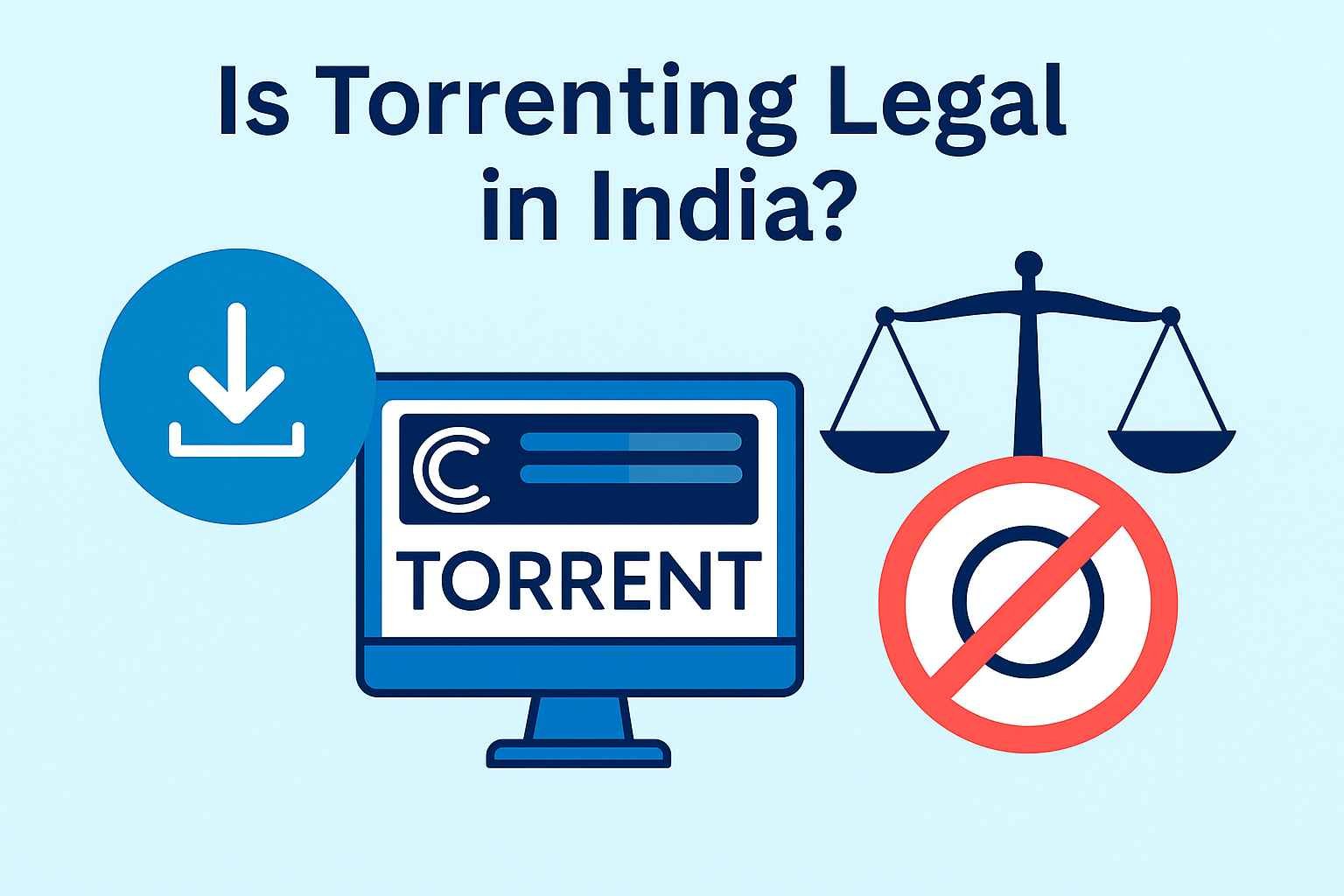On this page you will read detailed information about Can You Play Loud Music at Night in India?
Introduction
Whether it’s a house party, religious celebration, or festival, the question of playing loud music late at night often leads to neighbor disputes and police action. In India, noise is a regulated environmental pollutant—and yes, both state rules and judicial decisions restrict how much noise you can make after dark.
In this article, we look at:
- How noise is regulated legally in India
- Key statutes, municipal rules, and Supreme Court guidelines
- What “loud music” means legally
- Your rights, liability, and tips to avoid trouble
Legal Framework for Noise in India
Environmental Protection Act & Rules
- The Environment (Protection) Act, 1986 gives the central government power to make rules protecting the environment. Under this, the Noise Pollution (Regulation and Control) Rules, 2000 were created.
- The 2000 Rules define noise limits for different zones (industrial, commercial, residential, silence zones) and restrict noise levels in night hours (10:00 PM to 6:00 AM). For residential areas, the Rule sets permissible noise limits of 55 dB (A) during day and 45 dB (A) at night.
- A silence zone (around hospitals, courts, educational institutions) demands even stricter limits—within 50 meters of such zones, the noise must not exceed 50 dB (A) day / 40 dB (A) night.
State & Municipal Statutes
- Most states and municipal corporations have local noise control bylaws or pollution control orders (e.g. in Delhi, Maharashtra, Tamil Nadu) that define permissible sound levels, fines, enforcement protocols, and hours when loud activity is prohibited.
- These local rules often include penalties, right to seize loudspeaker equipment, and even power to shut down events temporarily if noise limits are violated.
Supreme Court & High Court Guidelines
India’s courts have issued a number of landmark rulings interpreting noise law:
- The Supreme Court in Indian Council for Enviro-Legal Action vs. Union of India (1996) recognized noise as an environmental pollutant and directed states to strictly implement noise rules.
- Courts have held that playing loud music in silence zones or late at night violates constitutional rights of residents to a peaceful environment (Article 21: Right to Life).
- Several High Courts have issued orders to municipal authorities to adopt sound meters, provide noise complaint systems, and act against violators.
Thus, legal doctrine supports noise control as part of environmental justice.
What Counts as “Loud Music”? Decibels, Perception & Limits
Measuring Sound: dB (A)
Sound is measured in decibels (dB). The “A” weighting (dB(A)) approximates human hearing sensitivity. Each increase of 10 dB roughly means doubling perceived loudness.
A residential ceiling of 45 dB(A) at night is quite low—comparable to soft conversation in a quiet room.
Factors Influencing Perception
- Distance & transmission: Sound dissipates with distance. Outdoors or in open space, loud music carries farther. Windows, walls, and barriers matter.
- Bass frequencies: Low frequencies (bass) travel farther and are felt more—often the source of neighbor complaints.
- Timing & context: Even if dB levels are borderline, at 2:00 AM a small amount of music may become unacceptable noise.
Loud Music vs. Ambient Noise
Not every loud sound is unlawful. The determining factor is whether it crosses the permissible limits for the zone and time, or disturbs peaceful enjoyment consistently.
When Is Loud Music Illegal at Night?
Here are conditions under which playing loud music at night is likely illegal:
- Exceeds local noise limits for residential/silence zones as per state or municipal rules
- Disturbs neighbors severely (complaints, court action)
- Occurs in silence zones (near hospitals, courts), where lower thresholds apply
- During restricted hours (commonly 10:00 PM to 6:00 AM or state variation)
- Using unauthorized loudspeakers or sound amplification beyond permitted capacity
- Without required permissions (for public events, festivals)
If any of these apply, authorities (police, pollution control board, municipal corporation) may intervene.
Enforcement Mechanisms & Penalties
In practice, enforcement is carried out through:
- Police / law enforcement: On complaints, police may issue warnings, fine, or seize audio equipment temporarily.
- Municipal corporations: May issue notices, shutdown events, revoke event permissions.
- Pollution control boards: Use noise measuring equipment, issue show-cause notices, impose fines.
- Court orders / injunctions: Neighbors may file civil suits or public interest litigations invoking constitutional rights.
Penalties vary widely: fines can range from a few hundred to thousands of rupees; repeated violation may lead to more serious consequences depending on local legislation.
Some states allow community norms enforcement via bylaws or local magistrates directing suspension of the event.
Case Studies & Recent Incidents (2022–2025)
- In Delhi, residents frequently file complaints against loud parties; courts have ordered municipal bodies to adopt digital noise monitoring and proactive enforcement.
- In Mumbai, BMC (municipal corporation) cracked down on late-night DJ events with fines and equipment seizure.
- In Tamil Nadu, courts upheld locals’ right to silence, ordering sound-limiters (decibel cutoff devices) at function halls.
- In Karnataka, state pollution control board issued notices to hotels and clubs for breach of night noise limits.
These examples reflect growing public assertion of right to peace and enforcement willingness by authorities.
Rights & Defenses for Music Players
If you’re planning to play music, you should understand your lawful rights and possible defenses:
- Obtain permission or license
- For public events, get a public entertainment license from municipal authorities.
- Consider use of decibel limiters or monitors.
- Stay within sound limits
Use sound meters to ensure levels don’t exceed legal thresholds. - Operate outside nighttime hours
Hold music or performance before “quiet hours” begin (e.g. before 10 PM). - Mitigate impact
Use direction speakers, sound barriers, better acoustic design, lower bass level. - Record evidence and logs
If challenged, logs of decibel readings, warnings, or remedial measures can help show compliance or legitimate good faith. - Challenge measurement methodology
Sometimes noise readings are flawed (instrument calibration, placement). You can question how measurement was done. - Compliance defense
If you are in a licensed venue, comply with sound rules, and respond to warnings promptly, courts may show leniency.
Practical Tips for Residents & Event Organizers
- Use a dB meter app or handheld noise meter to measure beforehand.
- Place speakers away from neighbor walls and windows.
- Turn down volume around midnight and after.
- Offer advance notice to neighbors (distribute pamphlets or notices).
- For weddings or festivals, keep open communication with authorities and apply for necessary permissions.
- If confronted by police, comply peacefully but request to see legal authority (statute, license, noise limit rule) rather than stop without discussion.
Future Trends & Policy Changes (2025 Onwards)
- Municipal bodies are increasingly adopting real-time noise monitoring systems (IoT sensors, drone sound monitors) to detect noise violations.
- State governments may update noise rules with stricter standards or expanded “quiet hours.”
- District courts and high courts may mandate sound-limiters for function halls and event spaces.
- There is a push toward harmonized national guidelines for noise control rather than patchwork state rules.
- Public complaints may shift from manually filed to app-based grievance systems, making enforcement faster.
Conclusion
Yes—you can play music in India, even at night, but only within legal limits. Playing loud music that violates noise levels, disrupts neighbors, or uses unauthorized amplification may lead to fines, equipment seizure, or legal orders.
If you’re planning a late-night event, take the extra effort:
- Know your local noise rules
- Use decibel monitoring
- Schedule concerts early and lower volume later
- Apply for licenses and be responsive to neighbor concerns
That balance—celebration and respect for peace—is what the law aims to protect.
Disclaimer
The information and services on this website are not intended to and shall not be used as legal advice. You should consult a Legal Professional for any legal or solicited advice. While we have good faith and our own independent research to every information listed on the website and do our best to ensure that the data provided is accurate. However, we do not guarantee the information provided is accurate and make no representation or warranty of any kind, express or implied, regarding the accuracy, adequacy, validity, reliability, availability, or completeness of any information on the Site. UNDER NO CIRCUMSTANCES SHALL WE HAVE ANY LIABILITY TO YOU FOR ANY LOSS OR DAMAGE OF ANY KIND INCURRED AS A RESULT OR RELIANCE ON ANY INFORMATION PROVIDED ON THE SITE. YOUR USE OF THE SITE AND YOUR RELIANCE ON ANY INFORMATION ON THE SITE IS SOLELY AT YOUR OWN RISK. Comments on this website are the sole responsibility of their writers so the accuracy, completeness, veracity, honesty, factuality and politeness of comments are not guaranteed.
So friends, today we talked about Can You Play Loud Music at Night in India?, hope you liked our post.
If you liked the information about Can You Play Loud Music at Night in India?, then definitely share this article with your friends.
Knowing about laws can make you feel super smart ! If you find value in the content you may consider joining our not for profit Legal Community ! You can ask unlimited questions on WhatsApp and get answers. You can DM or send your name & number to 8208309918 on WhatsApp








